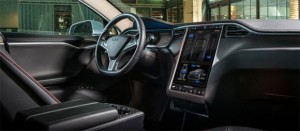 The National Highway Traffic Safety Administration estimates that 3,331 people were killed in crashes involving distracted drivers in 2011, and an estimated 387,000 more were injured. Many car companies have now created hands-free technology in cars so drivers can still use their cell phones without being distracted. But a recent study by the AAA Foundation for Traffic Safety showed that even this technology still leads to car accidents.
The National Highway Traffic Safety Administration estimates that 3,331 people were killed in crashes involving distracted drivers in 2011, and an estimated 387,000 more were injured. Many car companies have now created hands-free technology in cars so drivers can still use their cell phones without being distracted. But a recent study by the AAA Foundation for Traffic Safety showed that even this technology still leads to car accidents.
Even though hands-free technology in cars makes make it easier for drivers to text and talk on the phone while they drive, the report findings show that dangerous mental distractions exist through using a cell phone while driving, even when drivers keep their hands on the wheel and their eyes on the road.
The research found that mental workload and distractions increase through talking or texting through hands-free technology. This results in slower reaction time, compromised brain function, and drivers scanning the road less and missing visual cues, leading to drivers not seeing stop signs, other cars and pedestrians.
The study showed that the highest risk of a car accident occurring is when someone is trying to reply to an email or social media post through hands-free technology while driving, since their mental workload is highly increased.
After analyzing the results, AAA recommends the automotive and electronics industries to instead explore:
- Limiting use of voice-activated technology to core driving-related activities.
- Disabling voice-to-text technologies such as social media posting, e-mailing and texting while the car is moving.
- Educating vehicle owners and mobile device users about the responsible use and safety risks for in-vehicle technologies.
Distracted driving leads to numerous car accidents in Dallas, TX every year, which could have been prevented if drivers had been more responsible. If you or a loved one were the victim of a distracted driver car accident, you deserve compensation. Contact the Law Offices of Crowe Arnold & Majors, LLP today and set-up your free no-obligation consultation.





